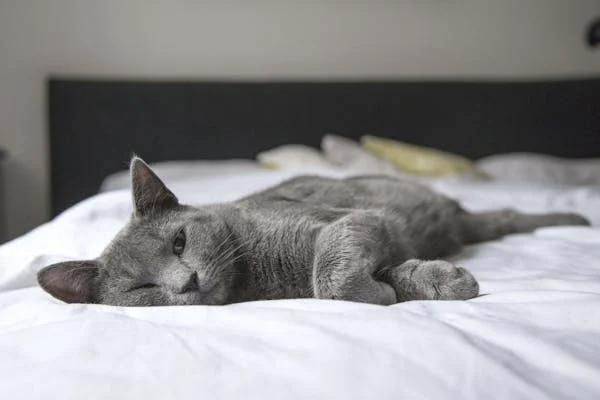If you’ve ever had a cat, you know one thing for certain: give them an expensive toy or a lavish bed, and they’ll probably ignore it in favor of an empty box. But why do cats have such a strong attraction to boxes? This common feline quirk isn’t just random behavior; there are several psychological, biological, and environmental factors that explain why cats love to curl up in cardboard.
1. Boxes Provide a Sense of Security
Cats are both predators and prey in the wild, and one of their natural instincts is to seek out small, enclosed spaces that provide protection. In a box, a cat can feel safe from potential threats because they are shielded on all sides. Being hidden allows them to observe their surroundings without being easily spotted. This behavior mirrors the feline’s instinct to hide in dens or caves in the wild. For cats, a box serves as the perfect fort.
The enclosed space also helps reduce stress. Studies have shown that cats in shelters that are given hiding boxes tend to adjust more quickly to new environments and exhibit lower levels of anxiety. For a domestic cat, a box offers a peaceful retreat when the world feels overwhelming.
2. A Perfect Hunting Hideout
Cats are stealthy by nature, and boxes give them the perfect vantage point to stalk their “prey” (whether that be a toy, your foot, or another pet). The high walls of a box provide excellent cover, allowing them to spring out and attack when the moment feels right. This taps into their predatory instincts, satisfying their need for both mental and physical stimulation.
Even in a home where the hunting is simulated, boxes still provide an opportunity for cats to exhibit this natural behavior. The thrill of pouncing from a hidden space makes boxes irresistible for playful cats.
3. Boxes Are Cozy and Warm
Cats are famously fond of warmth. You’ll often find them lounging in sunny spots or curling up near a heater. Cardboard boxes, with their insulating properties, provide a snug, warm environment that cats find particularly appealing. The small, confined space allows them to conserve body heat, creating a cozy nook where they can curl up comfortably.
Additionally, the material of the box itself adds to the attraction. The texture of cardboard, which can retain warmth, is another reason cats prefer to snuggle in these makeshift beds.
4. Curiosity and Exploration
Curiosity is a hallmark of feline behavior. Boxes provide an intriguing new environment to explore. When a cat encounters a box, they often inspect it thoroughly—sniffing, pawing, and eventually jumping inside. This curiosity stems from their instinct to investigate new and unfamiliar spaces for both safety and potential opportunities, such as discovering hidden prey or a new resting spot.
Once inside, the mystery continues. The tactile experience of being inside a box, surrounded by different textures and smells, can be mentally stimulating for cats. This engagement with a new object helps keep their environment enriching and exciting, reducing boredom.
5. Sensory Satisfaction
Cats are highly sensitive creatures, and the sound and feel of cardboard provide unique sensory experiences. The act of scratching a box satisfies their natural urge to maintain their claws. The sound of their paws against the cardboard, or even the crackling noise when they shift their weight, is stimulating to them.
Additionally, the scent that cardboard absorbs can be another factor. Boxes often carry a variety of scents from their surroundings, and cats are naturally drawn to investigate new smells. Rubbing their face or body against the box allows them to mark it as their territory, blending their scent with that of the box.
6. A Stress Reliever
For many cats, the world can be a stressful place, and boxes can provide an escape. Whether it’s dealing with a noisy environment, new people, or other animals, a box can serve as a refuge. It’s a quiet, enclosed space where cats can retreat and take a break from the hustle and bustle around them.
Hiding in a box allows a cat to feel more in control of their surroundings, which helps them cope with stress or fear. This is particularly important for shy or anxious cats, as having a secure space can make them feel less vulnerable.
Conclusion: A Combination of Comfort, Instinct, and Curiosity
The reason cats love boxes is a blend of their natural instincts, need for comfort, and innate curiosity. Boxes offer security, warmth, and a perfect hideout to practice hunting skills. They also provide sensory enrichment, making them an ideal escape from the world when things get overwhelming. So, next time your cat ignores a fancy toy in favor of a cardboard box, know that it’s not just random—it’s feline psychology at work.
In the end, providing your cat with a box (or several) is one of the simplest ways to keep them entertained and happy.

